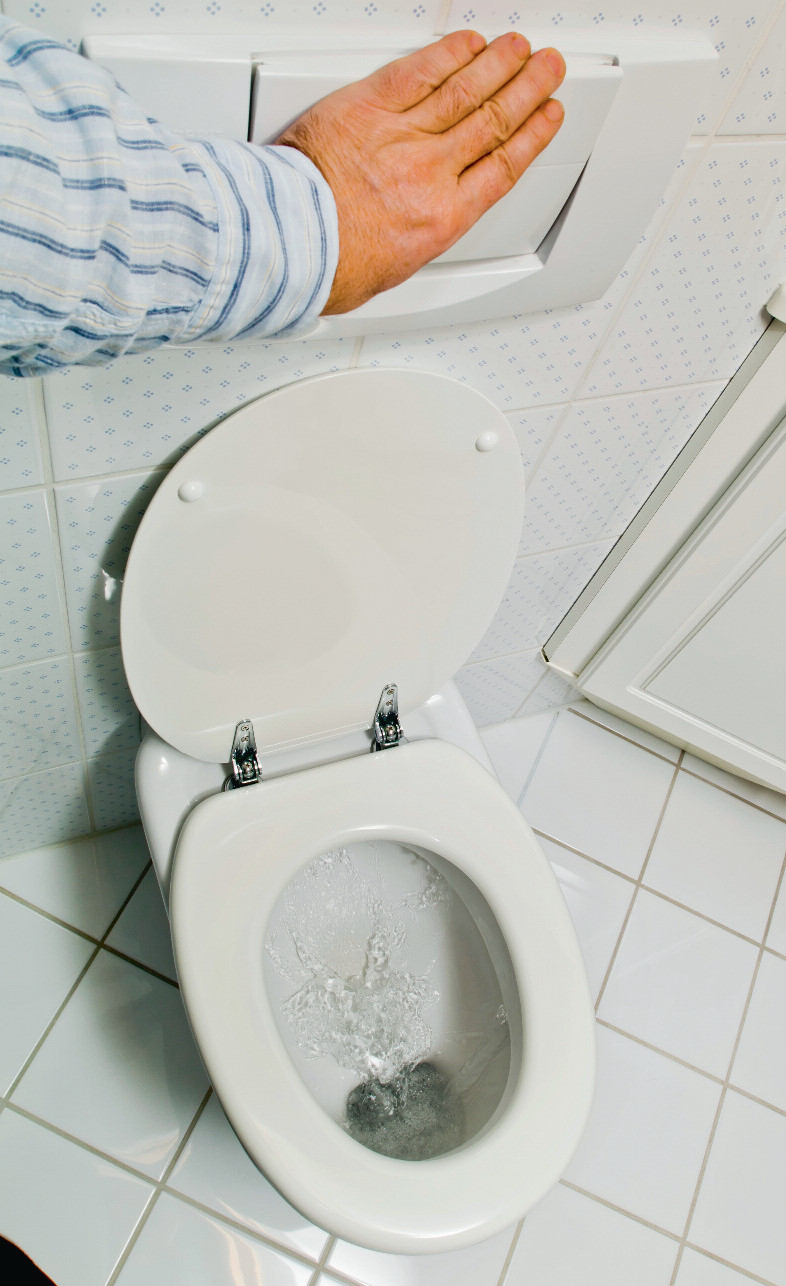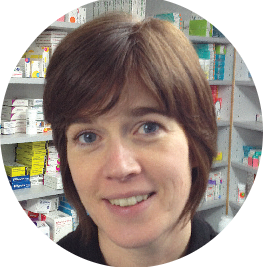Long term conditions

Pharmacy must reach incontinence sufferers
In Long term conditions
Bookmark
Record learning outcomes
The incontinence market is enjoying healthy growth, but there are still many sufferers who delay or avoid seeking help for this common problem. P3 looks at how pharmacies can reach out to more sufferers

It is estimated that about one in four of us has experienced some level of bladder weakness, with three to six million people affected in the UK, while a further one in 10 suffers with bowel incontinence. This makes the problem more common than migraine or hayfever. The condition is more prevalent among women, with about 32 per cent affected, but it also affects 13 per cent of men.
The market for incontinence products is rapidly growing as the issue slowly becomes more recognised and sufferers start to seek help, with sales up 10.6 per cent in 2014, according to Mintel. ‘Historically, 75 per cent of all incontinence products are sourced through institutions. However, with NHS budgets being squeezed by other ailments, consumers are relying more on the retail market,’ says Cathy Crossthwaite, marketing co-ordinator at Numark.
‘Prevalence increases with age, with an estimated 46 per cent of women and 34 per cent of men aged 80-plus affected. What’s more concerning is that up to 80 per cent of sufferers have never sought medical advice and 35 per cent view it as simply part of the ageing process. In most cases these conditions can be easily treated or significantly improved via straightforward interventions,’ says Ritu Bhardwaj, senior product manager for Alvita.
Pharmacy advantage
The local pharmacy has the advantage of being a familiar environment but one with experienced and specially trained staff whom customers trust. TENA training & brand manager Donna Wilson says: ‘Research from TENA has revealed that one in seven women and one in eight men will visit their local pharmacy for health advice about bladder weakness rather than their GP. This means bladder weakness is now one of the fastest growing OTC categories in pharmacy.’
‘This is because pharmacies are trusted environments and customers feel it is a safer environment to purchase bladder weakness products, especially if seeking additional advice.’ ‘Pharmacy can offer a smaller, quieter environment and the opportunity to ask questions of either an healthcare assistant or pharmacist in a private area. Pharmacy also has a much better product range and can offer superior advice to shop assistants,’ says Ms Crossthwaite.
Customers have the advantage of a confidential and private environment each time they visit the pharmacy. ‘An environment where either the customer is known or is a regular user of the pharmacy may put them more at ease, especially if they have asked for advice in the past for another health issue. Repeat purchases can be common with these products so the opportunity to have regular ordering and discreet purchasing will give confidence to your customers.’
P&G Femcare brand manager Christine Turner says: ‘As pharmacies offer one-to-one consultancy, they are in a favourable situation to start the conversation on adult incontinence and discreetly find out about the specific nature of the customer’s condition.’ However, many people with the condition are still do not realise the advantage of using suitable products. Ms Turner says that 67 per cent of women are using the wrong protection due to lack of knowledge.
At Shaftesbury Pharmacy in Harrow, Lila Thakerar says: ‘The pharmacy has the advantage of having all the products visible and available to show customers, which GP surgeries don’t, and you can make links between different categories.’ And Amish Patel at Hodgson Pharmacy in Longfield, Kent, says: ‘Pharmacy will first offer a range of products to customers, but experienced and specially trained staff is what sets the pharmacy environment apart.’
Sensitive subject
‘Use your private consulting area and take your customer here for a quiet discussion. It helps both you and your customer feel more comfortable and able to talk more openly,’ suggests Ms Thakerar. And Ritu Bhardwaj has this advice:
‘Demonstrating an awareness of incontinence will go a long way to easing customers’ minds and help them to seek advice. Useful techniques include:
- Moving to the consultation room
- Putting them at east by telling them how common incontinence conditions are
- Letting them know why you’re asking particular questions and advising them that in most cases the problem can be easily managed via a combination of medical products and self-help.’
At the Association of Continence Advice, chair Janice Reid says: ‘To dispel embarrassment, keep the conversation light and factual in tone, not too personal and make it seem normal and commonplace.’ Ms Wilson has this advice: ‘When it comes to engaging customers who might be feeling embarrassed about bladder weakness, confidence is key.’
There are three key points to bear in mind, she says: reassure, educate and advise your customer. ‘Discreetly ask about their experience of bladder weakness in order to recommend the correct product. Bladder weakness can be due to a number of different reasons so it’s important to discuss this in order to recommend the most appropriate absorbency of product.’
Ms Crossthwaite advises: ‘One idea is to offer point-to cards to help with diagnosis. Saying the words can be much more difficult for customers than pointing to a particular issue on a card. Share personal or family experiences with customers; they will appreciate knowing that someone is in the same boat.’ ‘Having an educated conversation can help to take the stigma from the condition and ensure women are buying the right products that answer their needs,’ advises Ms Turner.
Â
The size of the incontinence market
Market data confirms that this continues to be a highly successful category within community pharmacy:
- Research by P&G has found that the adult incontinence market is the fastest growing category in health and beauty.
- The adult incontinence market saw growth of 10.6 per cent last year (figures from Mintel, July 2014) to £113.1 million.
- The global market is predicted to reach £4.5 billion by 2017 at a growth rate of 3.8 per cent a year (according to Transparency market research).
- According to TENA research, bladder weakness overtook ‘ultra towels’ as the biggest category in the intimate hygiene market, representing almost a third of the category. It’s now worth £127 million and is growing at 13.1 per cent.
Build a better category in pharmacy
- ‘Make your category visible. Anyone who walks into our shop can see our incontinence products, as we display them in a highly visible area so they don’t need to ask for them,’ says Ms Thakerar.
- ‘We site incontinence products beside mobility and disability aids. I think keeping to just a couple of brands, but then stocking a range from those brands, is important. We stock them by brand, then in order of type of product, then by size and absorbency,’ says Mr Patel.
- ‘Locate the category in a quieter area of the store where customers feel able to browse in privacy, away from places where other customers may gather such as the till or waiting areas,’ suggests Ms Crossthwaite. ‘Merchandise male products together at one end of the shelf, female products together, too. Where space allows, it should be merchandised as a category on its own, adjacent to other independent living products you stock.’ She also suggests creating a scale in terms of absorption, so customers can clearly see which end of the scale they need to be shopping at. 􀀀
- ‘Stock a core range of bladder weakness products that cater for varying levels of absorbency. The different absorbency levels mean these products require an element of advice regarding which one is the most appropriate, providing pharmacies with a great platform for driving growth,’ says Ms Wilson. ‘Brands should be sited together with the lowest absorbency products on the top shelf and the highest on the bottom shelf.’ She also advises using product samples.
Â
 Men reluctant to seek advice
Men reluctant to seek advice
According to TENA research, one in four men aged 40+ experiences urine leakage at some point in his life, but 49 per cent admit they aren’t fully aware of the symptoms. The problem becomes more common with age, with three-quarters of men aged over the age of 65 affected. It’s a subject men find hard to discuss and it’s still largely seen as a problem that affects women and the elderly.
‘Men are more of a challenge, as they are with every health condition. You may often end up speaking to their partner as they are more likely to come in to buy incontinence products,’ says Robert Dixon at the Bladder & Bowel Foundation (helpline: 0845 345 0165; bladderandbowelfoundation.org). Ms Wilson at TENA agrees: ‘While more men are accepting urine leakage as a common issue, for some it remains a topic that causes undue embarrassment and a reluctance to seek advice.
As such, it’s particularly important that pharmacists feel knowledgeable and comfortable in offering their assistance and support to capitalise on this emerging trend.’
 Incontinence product update
Alvita’s new Light incontinence range includes ultra-discreet absorbant pads for men and women. The feature a super-absorbent core that traps fluid to keep skin dry, an embossed top sheet to keep moisture away from the skin, an odour neutraliser and are individually wrapped. The men’s pads have a contoured design for added comfort and leakage protection.
TENA’s Lights by TENA and TENA Lady brands have been repackaged and a new logo launched across the full TENA range. There are two additions to the TENA Lights range – Ultra Towel and Long Liners duo pack. TENA Men has been relaunched with new packaging to give the range a more masculine image and help it stand out from female incontinence products. The range has been extended so there are now five levels of absorbency to choose from, as well as a new Protective Shield product.
The pad is black to blend in with men’s underwear and designed to fit the contours of a man’s body comfortably and discreetly. The extra-think, ultra-absorbent core locks in drips and dribbles while odour control technology prevents unwanted smells. The TENA My PFF (My Pelvic Floor Fitness) mobile app helps guide women through pelvic floor exercises.
It features reminders, bespoke settings and progress monitoring. Pharmacists can review the personalised notes section to offer advice and recommend next steps to customers. TENA U-test is an integrated solution for collecting and analysing urine for the detection of UTIs, often linked with bladder weakness.
The test is simply placed onto a clean pad where both urine collection and analysis take place for a simple diagnosis. P&G’s Always Discreet range for sensitive bladder is 40 per cent thinner yet absorbs twice as much liquid, says the brand. Their products are available in three sizes with increasing absorbent capacity. Always Discreet Pants, for heavy protection, come in two sizes.
A survey of GPs by Astellas Pharma has found that the mismanagement of patients with overactive bladder results in unnecessary and expensive referrals to secondary care. The majority of patients can be effectively treated in primary care or another community setting, without the need for hospital referral. The survey found that not all GPs follow NICE guidelines when managing patients with an overactive bladder problem.
Â
Self-help tips for patients
- Do pelvic floor exercises daily
- Quit smoking, as coughing puts a strain on pelvic floor muscles
- Avoid heavy lifting wherever you can
- Lose some weight if you need to – being overweight can weaken the pelvic floor muscles
- Treat constipation, as straining to empty bowels weakens pelvic muscles
- Caffeine makes incontinence worse because it irritates the bladder
- Drink plenty of fluids, ideally water and between six and eight glasses a day
- Cut down alcohol intake, as it is a diuretic
- Before an appointment with a professional to discuss incontinence, it’s helpful to keep a ‘bladder diary’ for a week, advises the BBF. Encourage people to record how many times they go to the toilet during the day, any accidents they have and what they eat and drink.
Â
Comment
 Fiona McElrea, Whithorn Pharmacy, Whithorn ‘This is massive – it’s probably the biggest category that we’ve got now. We’ve had a large rise in TENA Men in the past year, TENA Lady is selling well, and Always Discreet has done a lot of work to try and grow its share. We’ve given the category a bigger space and put some show material out to make it quite visible in the shop. We’ve also made sure that it’s a section that’s easy to access, because some people are embarrassed and just want to be able to pick the product up off the shelf quickly and with no fuss. A lot of people really don’t want to talk about incontinence, especially older men, so it is important to have the ranges visible and easy for them to just pick up and buy – it makes all the difference.’
Fiona McElrea, Whithorn Pharmacy, Whithorn ‘This is massive – it’s probably the biggest category that we’ve got now. We’ve had a large rise in TENA Men in the past year, TENA Lady is selling well, and Always Discreet has done a lot of work to try and grow its share. We’ve given the category a bigger space and put some show material out to make it quite visible in the shop. We’ve also made sure that it’s a section that’s easy to access, because some people are embarrassed and just want to be able to pick the product up off the shelf quickly and with no fuss. A lot of people really don’t want to talk about incontinence, especially older men, so it is important to have the ranges visible and easy for them to just pick up and buy – it makes all the difference.’
Â
 Jackie Lewis, Lewis Pharmacy, Exmouth ‘This is a top category for us. When we last looked at our epos data, one of our best sellers was TENA Men. We have men, women, carers and family members all coming in to buy products in this category. In fact, we have to use a second supplier for most of the products, because our main wholesaler doesn’t do everything we need. We have a disproportionate amount of shop space for it, and the category is the main reason why we need a stock room. There’s quite a lag time between the orders going into the NHS supply service and us receiving the goods, which isn’t great when we’ve got such a huge demand for the products and we’re so well known in the area for giving good advice. It’s also an opportunity to offer health checks to carers when they come in.’
Jackie Lewis, Lewis Pharmacy, Exmouth ‘This is a top category for us. When we last looked at our epos data, one of our best sellers was TENA Men. We have men, women, carers and family members all coming in to buy products in this category. In fact, we have to use a second supplier for most of the products, because our main wholesaler doesn’t do everything we need. We have a disproportionate amount of shop space for it, and the category is the main reason why we need a stock room. There’s quite a lag time between the orders going into the NHS supply service and us receiving the goods, which isn’t great when we’ve got such a huge demand for the products and we’re so well known in the area for giving good advice. It’s also an opportunity to offer health checks to carers when they come in.’
Â
 Shaheen Bhatia, Broadway Pharmacy, Bexleyheath ‘I think lack of awareness means that people don’t know that they can come to us first. They usually come in after going to a doctor or when they find out that incontinence pads aren’t available on prescription. Word of mouth helps. I think TENA offers good training and you can get sample packs from them. We encourage our staff to ask customers if they would you like to talk in private. Then they can discuss it more openly. Many people are still not aware that pharmacies have private consultation rooms, so we’ve put posters around the pharmacy to help spread the word. We also raise it as an area we cover when we go and meet with the GPs and nurses.’
Shaheen Bhatia, Broadway Pharmacy, Bexleyheath ‘I think lack of awareness means that people don’t know that they can come to us first. They usually come in after going to a doctor or when they find out that incontinence pads aren’t available on prescription. Word of mouth helps. I think TENA offers good training and you can get sample packs from them. We encourage our staff to ask customers if they would you like to talk in private. Then they can discuss it more openly. Many people are still not aware that pharmacies have private consultation rooms, so we’ve put posters around the pharmacy to help spread the word. We also raise it as an area we cover when we go and meet with the GPs and nurses.’
